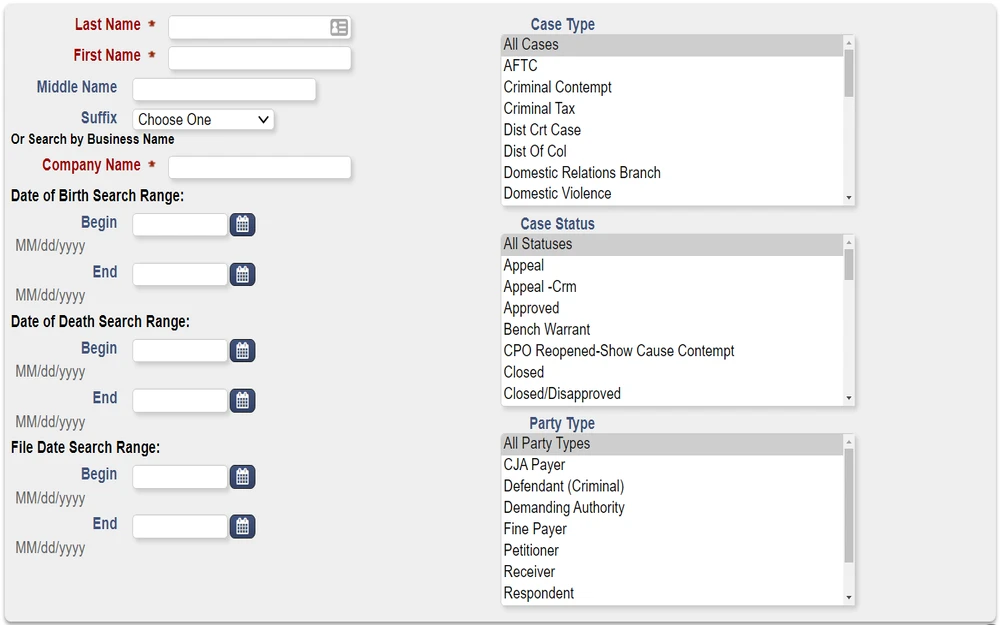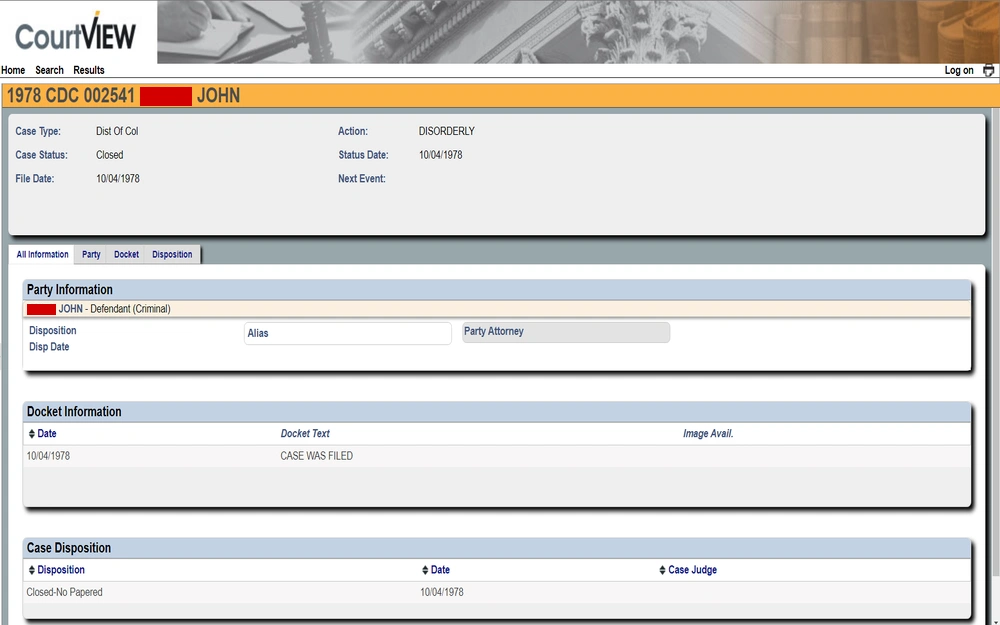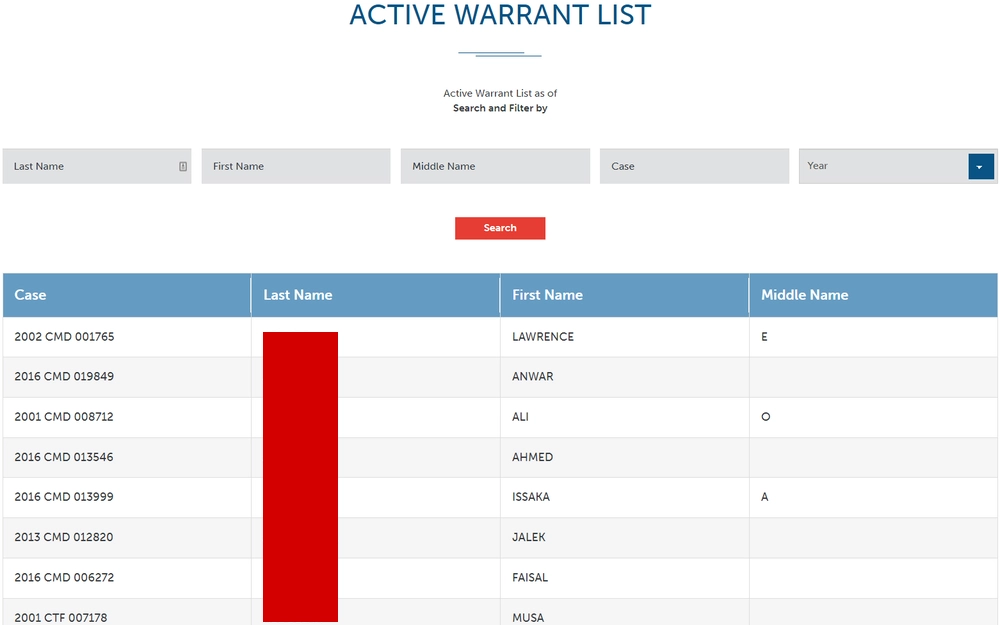Perform a free Washington, D.C. probation search quickly and without stress via search tools and publicly accessible court databases.
Court records are invaluable sources of information for individuals looking to learn the status of an offender. Probation refers to an offender being released on a suspended sentence and supervised for the duration of the probation period; this is in contrast to parole, where an offender serves part of their sentence, and then is released early with a requirement to report regularly to a supervising officer.
This streamlined resource explores some of the options for conducting a probation search, shows how to access court records via various search tools, and explains how crime victims can request notification about the custody status of offenders in Washington, D.C.
How To Run a Free Washington D.C. Probation Search
To conduct a Washington, D.C., supervision search, start with the “Locate an Inmate” telephone-based service offered by the Department of Corrections’ Records Office.1 This tool helps individuals find information about current and recently released offenders who are held in Washington, D.C., prison facilities.
The Washington D.C. Department of Corrections can be reached at:
Washington DC Department of Corrections
2nd Fl., 3924 Minnesota Avenue, NE
Washington, DC 20019
Phone: 202-698-4932
Fax: 202-671-2043
Email: [email protected]
The records office doesn’t have an online search portal, but searches can be conducted over the telephone by calling 202-523-7060. Victims of crime can register with VINE (Victim Information & Notification Everyday) by calling 877-329-7894.
The VINELink allows users to register with VINE to request information about the status of offenders online. This is a national service, so those who are interested in learning the status of offenders who committed a crime outside of Washington, D.C., can also make use of VINE.
Another useful resource for people looking for information about the outcome of a trial is the District of Columbia Online Case Search System.
The eAccess system covers criminal cases, although searchers will need to know the case number to access records and not all cases are accessible online at this time.2 There’s no fee for using the service, so it’s worth checking to see if records are available.
To use the eAccess system, searchers can click on the Name Search tab on the search page, then provide as many details as possible. The form accepts many parameters, including:
- Offender First & Last Name (required)
- Case Type
- Date of Birth (as a range)
- Court Filing Date (as a range)

The results will appear as a table; by clicking on the underlined case number of any result, users can view additional details of that case.

Case searches relating to Washington D.C. Superior Court can be directed to [email protected].
Individuals who need information about a court case that took place elsewhere in the U.S. should refer to that state’s electronic filing system.
Search Probationer Records via Local Agencies in D.C.
Washington, D.C., is a relatively small territory, having an area of just 68 square miles. It doesn’t have any counties, and the majority of criminal court cases are recorded in the eAccess system listed above. However, it’s useful to be aware of alternative case search options.
The Public Access to Court Electronic Records (PACER) system is another useful tool for Washington, D.C., supervision search efforts.
PACER can be accessed online or by visiting a public access terminal at a courthouse.3 There is a nominal fee for pulling up documents via PACER. This fee is currently set at $0.10 per page, capped at $3.00 per document.
Counterintuitively, it’s not advisable to contact the main probation office in Washington, D.C., for information about records. This is because probation offices are not custodians of public records. Probation officers oversee individuals who are under this type of supervision and ensure they’re complying with the requirements of their release.
As such, the probation office is unlikely to answer public questions about the whereabouts or status of a specific offender.
Police departments are also unlikely to be able to assist with inquiries about offenders. If someone was recently arrested, the Metropolitan Police Department may be able to inform a caller about whether that person has been released from custody, but for information about offenders who have had their cases adjudicated, court records and VINELink would be the most suitable information sources for the public.4
How To Check a Washington D.C. Probationer’s Violations & Reach Out to Their Supervising Officer
When an offender is released on probation, they are assigned a probation officer who supervises them. The main location of the District of Columbia Probation Office can be found at the following address:5
Barrett Prettyman United States Courthouse
333 Constitution Avenue, NW
Washington, DC 20001
Phone: 202-565-1300
A Washington D.C. supervision search should indicate which probation office an offender is currently being supervised by. Individuals who have concerns about the status of a probationer can contact that specific probation office and make them aware of the issue. The office will be able to pass on the information to the probation officer responsible for that offender.
In cases where a person is concerned for their own safety – or if a crime is currently being committed – contacting the local police department is a good idea, as the police would be able to respond more quickly to any concerns.
If an offender is already known to be in violation of their probation, there may be a warrant out for their arrest. The District of Columbia court system maintains a list of active warrants, searchable by name or case number.6
The list does not indicate what an individual is wanted for, but it will at least indicate if law enforcement officials are currently looking for that person.

How To Determine Who Is a Parolee in Washington D.C.
The same tools that would be used to look up probation information can also provide insight into parolees. It’s also possible to look up information about D.C. parolees via the Washington D.C. Department of Corrections.7
Interested parties can call the department’s records office at 202-523-7060, or contact the department at the following address:
Washington D.C. Department of Corrections
2nd fl., 3924 Minnesota Avenue, NE
Washington, DC 20019
The Court Services & Offender Supervision Agency (CSOSA) provides supervision of adult offenders after they are released from prison. The agency can be reached at:
Court Services & Offender Supervision Agency
633 Indiana Ave., NW
Washington, DC 20004
Phone: 202-220-5300
Washington, D.C., is in the process of localizing its parole system. Currently, parole decisions are made by the U.S. Parole Commission. The localization efforts have been underway since 2018 and have been extended twice due to implementation challenges.
It’s expected that localizing the parole system will give control to those with closer links to the district and improve outcomes for all parties involved in the process.
While the system isn’t currently locally controlled, victims can still give input into an offender’s parole hearing if they wish to do so. This can be done either by attending a parole hearing in person or submitting a written statement. Victims can also request to be sent the results of the parole hearing, along with any other relevant information about the case.
VINELink is a particularly useful tool for those who are seeking information about parolees, as it’s possible to register for the service while a person is in custody and request information about their movements should they be transferred or released.
Victims of crime are entitled to be notified about the progress of their case, including if a person is released on probation or jailed. More information is provided in the Crime Victim’s Bill of Rights published by the Washington, D.C. Metropolitan Police.
The Washington, D.C., Office of Victim Services & Justice Grants provides a range of support programs to help those who have been a victim of a crime, including financial assistance to cover the cost of any out-of-pocket expenses resulting from the crime.8
Using this streamlined resource for guidance, it’s possible to perform a Washington, D.C. probation search or find out if someone is on parole without having to spend much – or anything – on fees; go a step further and look up criminal histories as well using the D.C. arrest and criminal record search tutorial.
References
1District of Columbia Department of Corrections. (n.d.). About DOC. Retrieved April 2, 2024, from <https://doc.dc.gov/page/about-doc>
2District of Columbia Courts. (2024). Search. Retrieved April 2, 2024, from <https://eaccess.dccourts.gov/eaccess/home.page.4>
3Public Access to Court Electronic Records (PACER). (n.d.). Login. Retrieved April 2, 2024, from <https://pacer.login.uscourts.gov/csologin/login.jsf?appurl=pcl.uscourts.gov/search>
4Metropolitan Police Department. (n.d.). Police Districts and Police Service Areas. Retrieved April 2, 2024, from <https://mpdc.dc.gov/patrolservices>
5U.S. General Services Administration. (2024, February 27). Elijah Barrett Prettyman U.S. Courthouse. Retrieved April 2, 2024, from <https://www.gsa.gov/real-estate/gsa-properties/visiting-public-buildings/e-barrett-prettyman-us-courthouse>
6District of Columbia Courts. (n.d.). Active Warrant List. Retrieved April 2, 2024, from <https://www.dccourts.gov/services/active-warrant-list>
7District of Columbia Department of Corrections. (n.d.). Locate an Inmate. Retrieved April 2, 2024, from <https://doc.dc.gov/page/locate-inmate>
8Office of Victim Services and Justice Grants. (n.d.). Crime Victim Compensation. Retrieved April 2, 2024, from <https://ovsjg.dc.gov/page/crime-victim-compensation>
